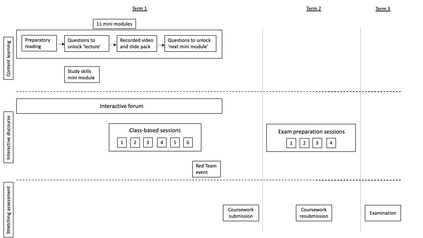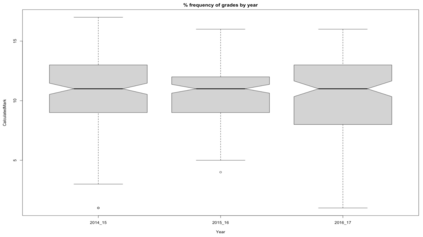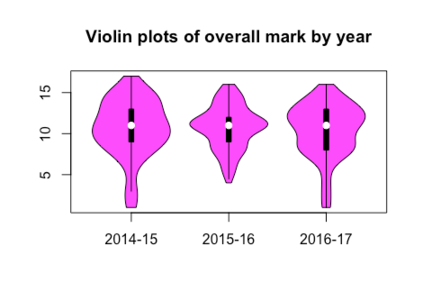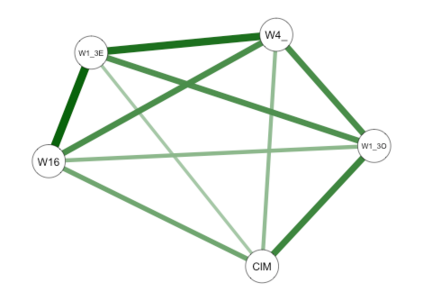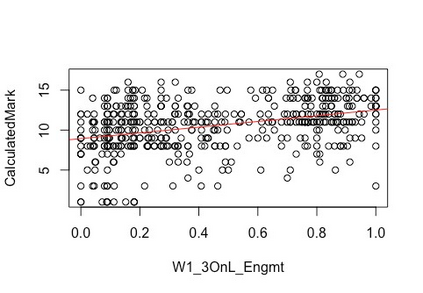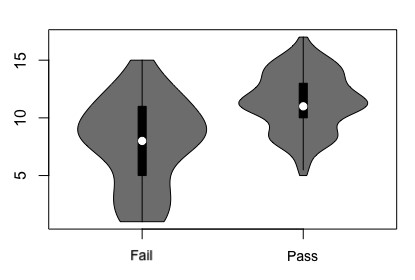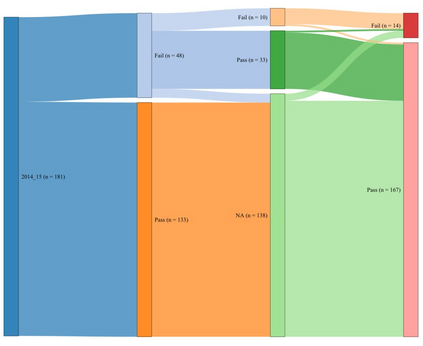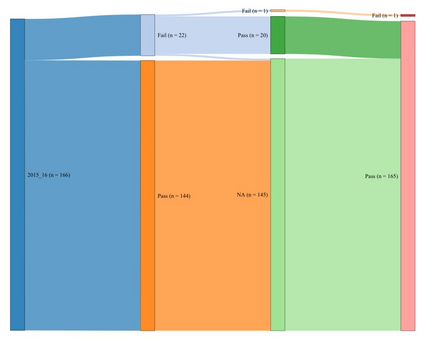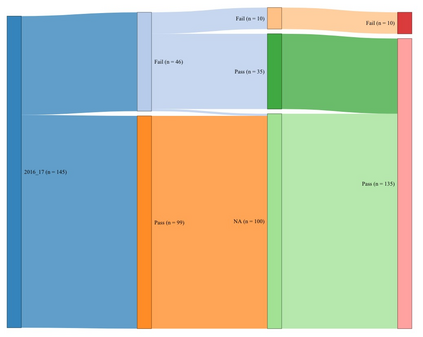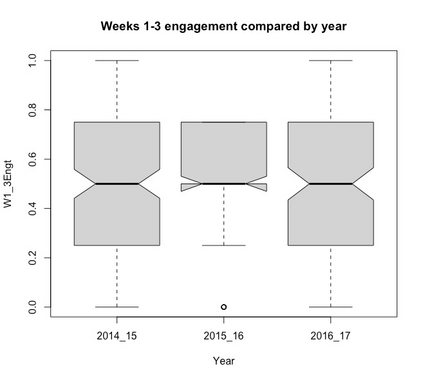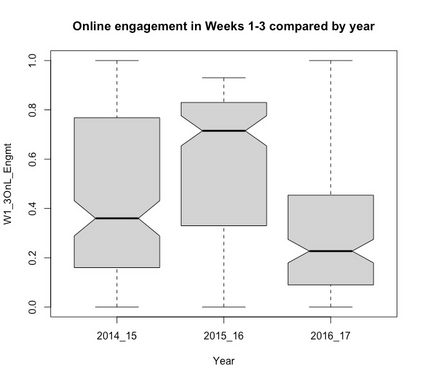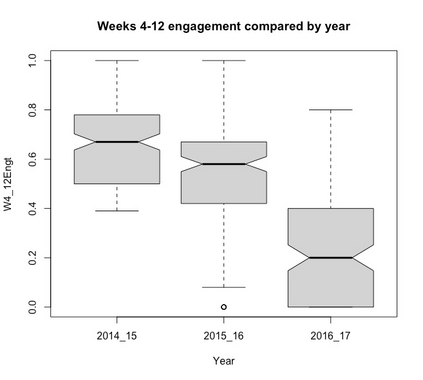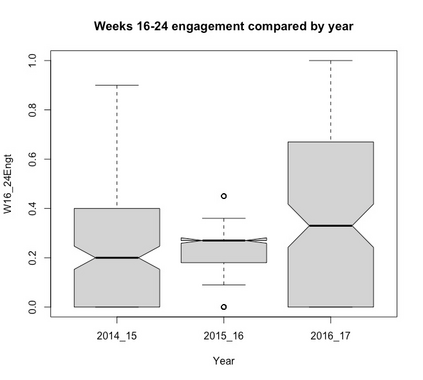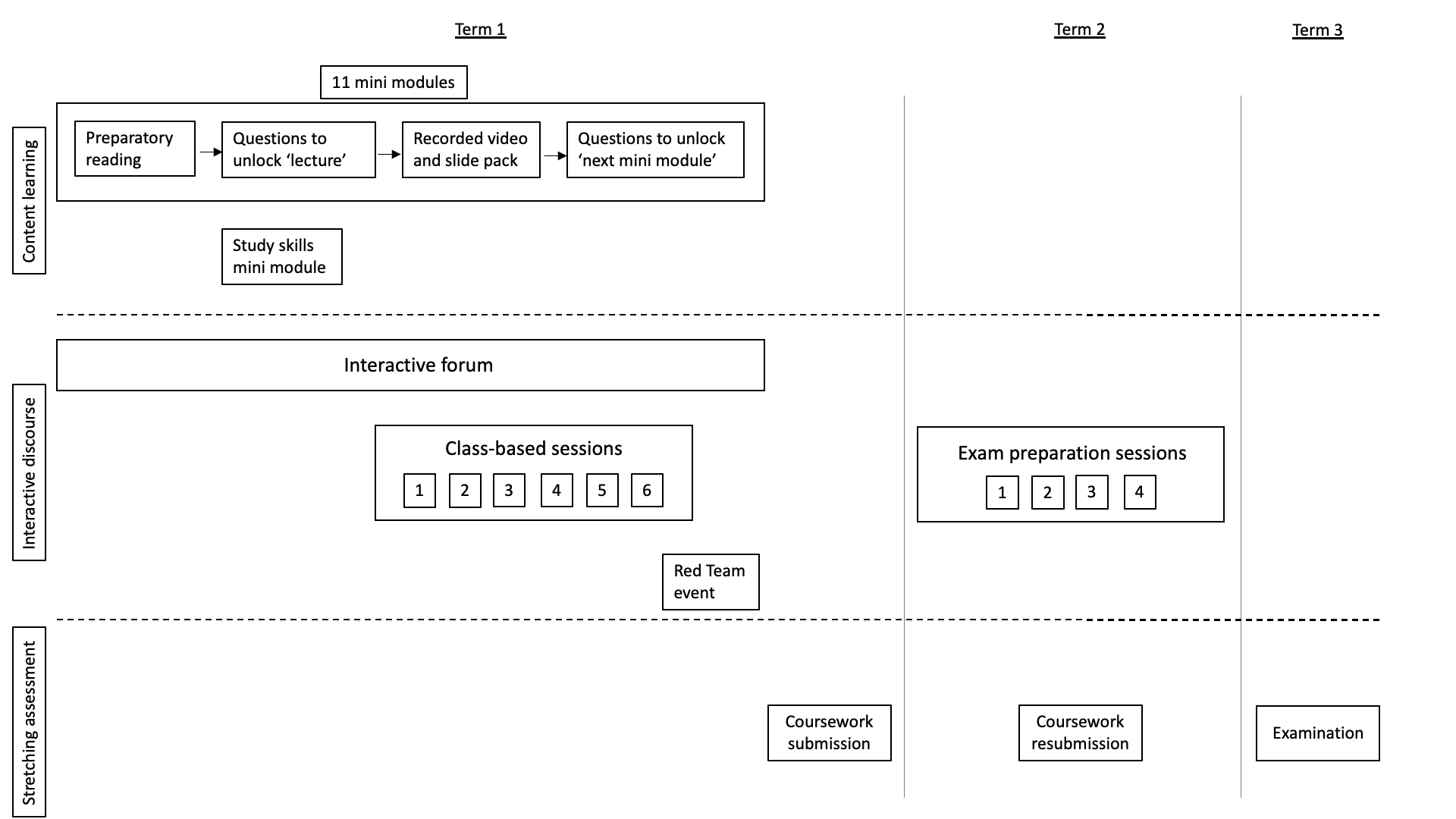Many studies in educational data mining address specific learner groups, such as first-in-family to attend Higher Education, or focus on differences in characteristics such as gender or ethnicity, with the aim of predicting performance and designing interventions to improve outcomes. For Higher Education, this is reflected in significant interest in institutional-level analysis of student cohorts and in tools being promoted to Higher Education Institutions to support collection, integration and analysis of data. For those leading modules/units on degree programmes, however, the reality can be far removed from the seemingly well-supported and increasingly sophisticated approaches advocated in centrally-led data analysis. Module leaders often find themselves working with a number of student-data systems that are not integrated, may contain conflicting data and where significant effort is required to extract, clean and meaningfully analyse the data. This paper suggests that important lessons may be learned from experiences at module level in this context and from subsequent analysis of related data collected across multiple years. The changes made each year are described and a range of data analysis methods are applied, post hoc, to identify findings in relation to the four areas of focus. The key findings are that non-engagement with the Virtual Learning Environment in the first three weeks was the strongest predictor of failure and that early engagement correlated most strongly with final grade. General recommendations are drawn from the findings which should be valuable to module leaders in environments where access to integrated, up-to-date student information remains a day-to-day challenge, and insights will be presented into how such bottom-up activities might inform institutional/top-down planning in the use of relevant technologies.
翻译:教育数据采矿的许多研究都针对特定学习者群体,如参加高等教育的一到家先到家,或侧重于性别或族裔等特征的差异,目的是预测成绩和设计改进成果的干预措施。高等教育方面,这反映在对机构层面的学生群分析的极大兴趣,以及正在向高等教育机构推广支持收集、整合和分析数据的工具中。对于学位方案的主要模块/单位而言,现实可以远远脱离中央主导的数据分析中倡导的看似得到良好支持和日益精密的方法。模块领导人往往发现自己与一些没有整合的学生数据系统合作,可能包含相互矛盾的数据和需要做出重大努力来提取、清理和有意义地分析数据。这份文件表明,可以从这一背景下的模块层面的经验以及随后对多年收集的相关数据的分析中吸取重要的经验教训。对于学位方案的主要模块/单位来说,每年的变化和一系列数据分析方法都可以被采用,即事后确定与四个重点领域有关的调查结果。主要结论是,在最初三个星期里,与虚拟学习环境的不参与程度,可能包含有冲突的数据,需要做出重大的努力来提取、清洁和有意义的分析数据分析。本文表明,在最后三个星期里,从机构层面的接触中,这种接触将是最深刻的、最深刻的、最难于最深刻的接触、最深刻的、最深刻的周期中,从最后的接触、最接近于最深刻的阶段的接触、最接近于最后的接触、最深刻的接触将仍然是从最后的接触会成为最接近于最后的阶段的阶段的接触,从最后的理论到最接近到最接近于最后的理论的阶段的阶段的阶段的接触,从最后的阶段,从一个最深刻的接触,从最后的阶段的阶段,从最后的接触到最接近到最深刻的阶段,从最后的接触,从最后的接触将如何到最接近于最接近于最接近于最后的接触到最深刻的接触到最接近到最接近的阶段的接触到最深刻的阶段的阶段的阶段的阶段的阶段的阶段的阶段,从最后的阶段的阶段的阶段的阶段的接触,从最后的接触,从最后的接触到最接近的阶段,从最后的阶段的接触。

